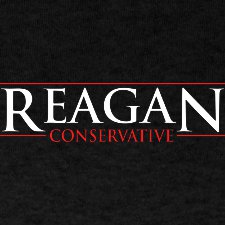If you read only one thing today, this should be it. Highlights are my own. Original article found here:
Ryan's Hat Is in the Ring
With the House budget, the GOP's institutions are joined to the party's presidential candidates.
By DANIEL HENNINGER
Paul Ryan threw his hat into the presidential political ring this week. It's a big hat—the House Republican budget resolution. A House budget isn't your father's idea of a presidential candidacy. Instead, it's an "ideas candidacy," and it just might put a Republican back in the White House.
Mr. Ryan chose last year not to undergo the U.S.'s presidential trial by ordeal. Instead, he is using the institutional authority of his office, chairman of the House Budget Committee, to shape the debate between the incumbent president, a New Deal Democrat, and the Republican reform movement that Mr. Ryan and his allies in Congress represent. (That, by the way, includes the Speaker of the House, John Boehner, who had to sign off on this document.)
Paul Ryan's admirers had their reasons for wanting him on the field, and mine comes down to one—the single, stark point Mr. Ryan has made since his side lost the health-care battle with Barack Obama, and which he made this week: "It is rare in American politics to arrive at a moment in which the debate revolves around the fundamental nature of American democracy and the social contract. But that is where we are."
Republican discontent the past nine months has been about the inability of any presidential candidate to match the moment as Mr. Ryan defines it. But it may be that Republicans have been loading up more hope than any one candidate can bear these days.
A modern presidential candidate is Gulliver, pecked at daily, even hourly, for months by thousands of squawking Internet crows. If Ronald Reagan himself were running like this for a year, we'd start picking at him, too.
Worse, they are connected to nothing other than themselves. Last summer, a member of the GOP leadership visited our offices, and we asked how much contact they had with the six or so candidates competing then in the not-so-great debates. The answer: zero. The party and its presidential candidates have become like celestial bodies, rotating in distant corners of the same galaxy.
With the Ryan budget, this party's two poles are joined. Especially on taxes.
Taxation is the subject that most clearly defines the competing visions of the two parties. Medicare is about a big fix. Tax policy is about the nature of the nation. It comes down to this: What are taxes for?
With the House budget, the GOP's institutions are joined to the party's presidential candidates.
In a blog post under that headline last April, Paul Krugman gave the conventional answer: "So taxes are, first and foremost, about paying for what government buys (duh)." Krugman is an idiot of the Left -- Steve
Larry Summers, when he left the White House, spoke of the impending nightmare of an "inadequately resourced" government. He said, "While recovery is our first priority, it is essential that we establish long-run parity between revenues and expenditures."
This has been the standard model of taxation's purpose since the king was collecting taxes in Robin Hood's Sherwood Forest. Ronald Reagan overturned the king's model in the Economic Recovery Tax Act of 1981, with support from pre-Obama Democrats. Reagan, radically, gave the economy's long-term growth prior claim over government's revenue needs. Refuting Reagan forever is the raison d'etre of the modern Democratic party and its satellites. Taxes are about government, nothing else. Duh.
For the alternative to this galley-slave view of taxes, with the citizenry rowing endlessly to the horizon for the government, open footnote 76 in the Ryan budget. It is House Ways and Means Chairman Dave Camp's tight description of what we should want from our tax system.
Here's my summary of his summary: Our taxation system ought to serve an America that must live and survive in the world as it is now, and will be into the distant future. That is a tax system that allows economic growth greater than the below-2.5% of the past three years, the new Obama normal. It is a tax system that maximizes the release of capital into the economy for productive purposes. That tax system will allow users of capital to create jobs for people who don't want to work for the government. That tax system will let U.S. firms compete in the new world dominated by young, emerging economies. It will be a fair tax system if its claims are not so heavy that it sinks into the corruptions of loopholes, credits and preferences bartered in Washington.
The tax system we have now is a 20th-century tax system, whose purpose was to pay for what government bought. And bought and bought. Republicans, anti-status quo insurgents and upwardly mobile independent voters should recognize that with the Ryan-Camp tax plan (two low personal rates, a lower corporate rate) now joined to the high-growth consensus of these presidential challengers, the U.S. has one chance this year and next, when the new code would become law, to rejoin the real world, not some 60-year-old dream world.
Subscribe to:
Post Comments (Atom)





No comments:
Post a Comment